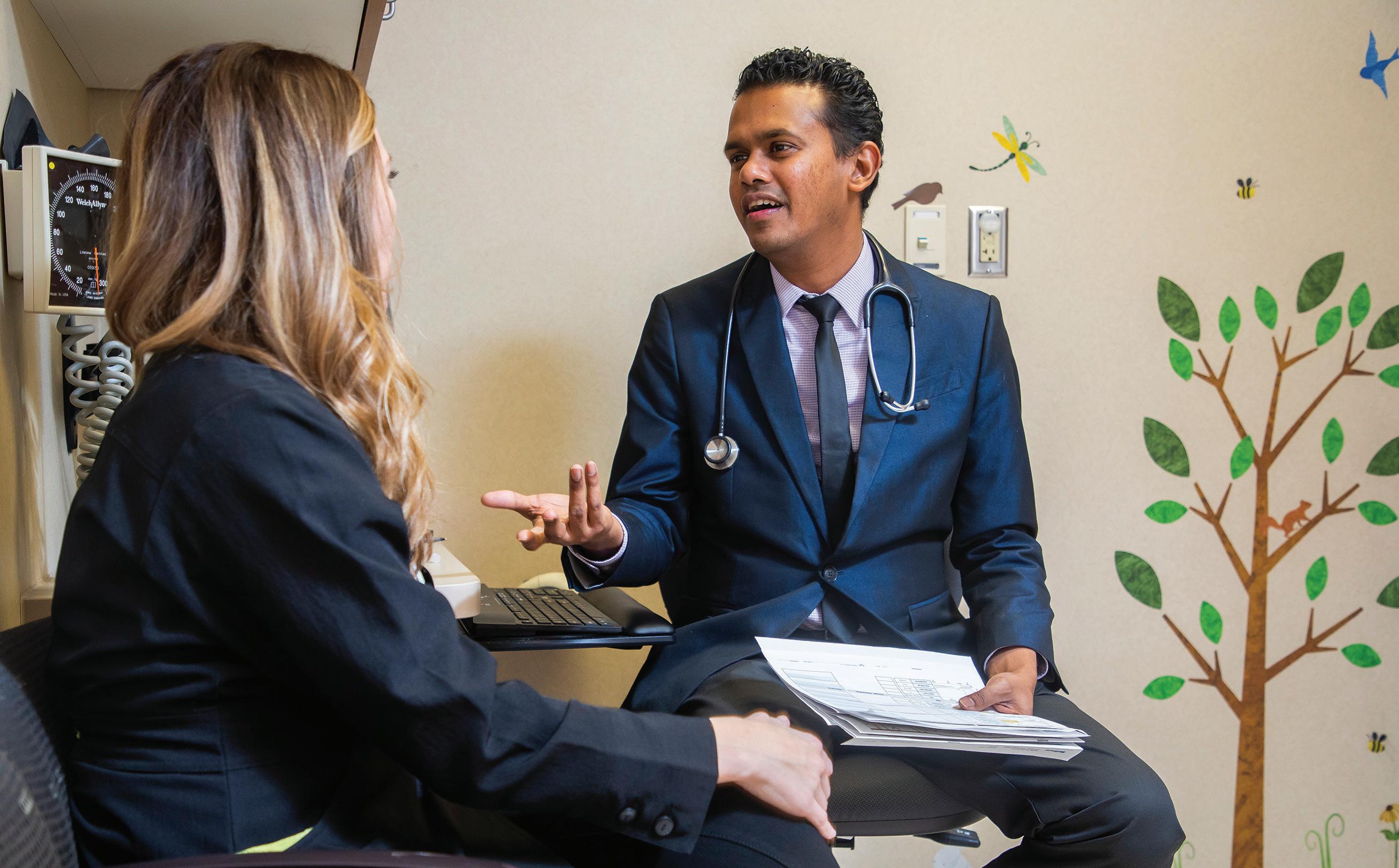
3 minute read
Rising obesity rate puts more children at risk for diabetes
by CO nn I e WI r Ta
Agrowing number of American children are being diagnosed with a serious disease that once afflicted adults in middle age.
“Thirty years ago, it was extremely rare to diagnose a child with type 2 diabetes,” explains Dr. Kannan Kasturi, an Essentia Health endocrinologist who cares for children and teens with diabetes and other hormonal conditions. “But as childhood obesity has increased, so has type 2 diabetes. Now we’re seeing many more children diagnosed with what had been an adult disease.”
There are two types of diabetes. In the past, most children were diagnosed with type 1, which means their bodies did not produce any insulin, a key hormone that breaks down food into fuel. Now, children are getting type 2, which means their bodies are not able to make enough insulin to keep up with their blood sugar levels. A landmark study found a 30.5 percent increase in type 2 diabetes in American children and teens between 2001 and 2009.
The trend can be attributed to a rising level of obesity among children, says Dr. Kasturi. Family history is another risk factor as well as ethnicity, with higher rates in Native American children.
Children are most commonly diagnosed between the ages of 10-19. “It’s the time when they have more access to fast foods and spend less time being more active, often due to more screen time,” explains Dr. Kasturi, who works in the Diabetes Center and Endocrinology Department at the Essentia Health-Duluth Clinic.
Diabetes is a chronic disease that can damage the eyes, heart, kidney, liver and nerves throughout the body. “When we diagnose children, we are already seeing complications, such has high levels of cholesterol and livers saturated with fat,” he says.
The long-term effects of type 2 diabetes in children is unknown because in the past it has been a disease usually first seen in people who are in their 40s and 50s. Dr. Kasturi says some experts predict a child’s life expectancy could be shortened by 15 years.
What can parents do?
Dr. Kasturi stresses the importance of continuing well-child visits into the teen years. “It is often a prudent pediatrician or physician who asks the right questions and screens for diabetes,” the endocrinologist says, explaining a small percentage of children with diabetes show no symptoms.
Symptoms of diabetes to watch for are:

• Increased urination as body tries to rid itself of excess blood sugar
• Increased thirst, caused by increased urination
Fatigue
• Lack of concentration

• Blurred vision
• Dark skin patches in the neck, armpits and inner elbows


• Slow wound healing
Children can also be diagnosed with pre-diabetes, a condition in which blood sugar levels are elevated but not within the range of diabetes. While it takes 10 to 15 years for prediabetes to develop into diabetes in adults, Dr. Kasturi says it takes only two to three years in children and teens.
Children diagnosed with diabetes are treated with oral medications and insulin. “The good news is that with proper diet and lifestyle changes, such as increasing physical activity, type 2 diabetes in children can be kept under control and in a few cases reversed,” Dr. Kasturi says. “I encourage parents to work with their children to lose weight and get more active. Do it as a family.”
Diabetes is just one area of Dr. Kasturi’s medical specialty, which focuses on hormones and their effect in the growth, development and health of children and teens. “Hormones play a vital role in everyone, through all stages in life, but are especially significant in growing kids,” he explains. “Minor imbalances in hormone levels can cause a lot of problems, so early detection and correction of these imbalances can be lifechanging.” — MDT
Connie Wirta is an editor for Essentia Health marketing. She wrote this for Moms & Dads Today.




New Pediatric Specialist At The Duluth Clinic

Dr. Kannan Kasturi specializes in pediatric endocrinology and sees patients in the Diabetes Center and Ensdocrinology Department at the Essentia Health-Duluth Clinic in Duluth. Dr. Kasturi earned a medical degree from the University of Seychelles American Institute of Medicine in Victoria, Seychelles. He completed a residency in pediatrics at State University of New York Downstate Medical Center in Brooklyn, New York, and a fellowship in pediatric endocrinology at the National Institutes of Health in Bethesda, Maryland. To see his full profile and video, visit EssentiaHealth.org.
To schedule an appointment with Dr. Kasturi, you need a referral from your child’s physician.
Pets











